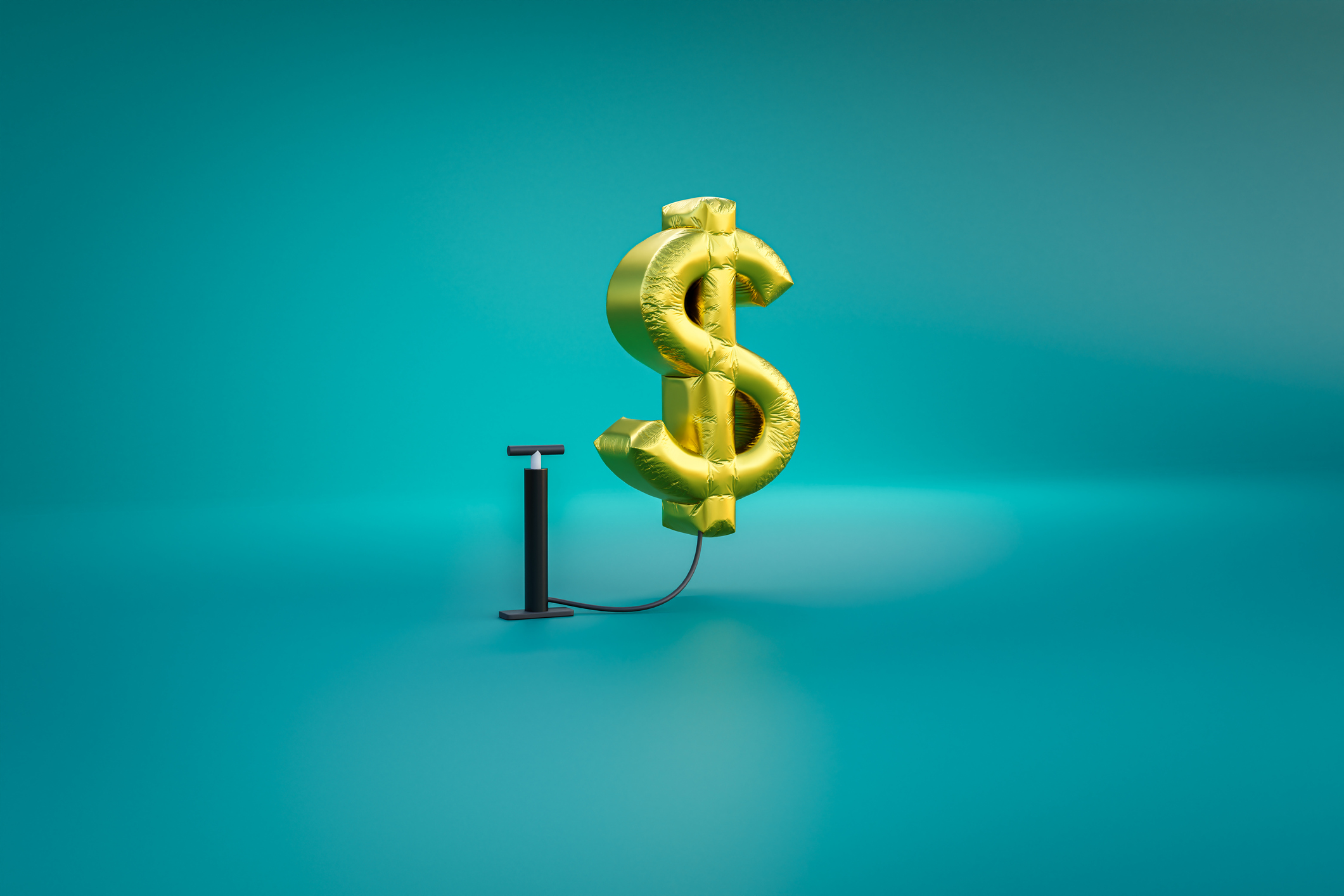Boost Your Returns With Brokered CDs
You can earn more with brokered certificates of deposit, but shop wisely.


Profit and prosper with the best of Kiplinger's advice on investing, taxes, retirement, personal finance and much more. Delivered daily. Enter your email in the box and click Sign Me Up.
You are now subscribed
Your newsletter sign-up was successful
Want to add more newsletters?

Delivered daily
Kiplinger Today
Profit and prosper with the best of Kiplinger's advice on investing, taxes, retirement, personal finance and much more delivered daily. Smart money moves start here.

Sent five days a week
Kiplinger A Step Ahead
Get practical help to make better financial decisions in your everyday life, from spending to savings on top deals.

Delivered daily
Kiplinger Closing Bell
Get today's biggest financial and investing headlines delivered to your inbox every day the U.S. stock market is open.

Sent twice a week
Kiplinger Adviser Intel
Financial pros across the country share best practices and fresh tactics to preserve and grow your wealth.

Delivered weekly
Kiplinger Tax Tips
Trim your federal and state tax bills with practical tax-planning and tax-cutting strategies.

Sent twice a week
Kiplinger Retirement Tips
Your twice-a-week guide to planning and enjoying a financially secure and richly rewarding retirement

Sent bimonthly.
Kiplinger Adviser Angle
Insights for advisers, wealth managers and other financial professionals.

Sent twice a week
Kiplinger Investing Weekly
Your twice-a-week roundup of promising stocks, funds, companies and industries you should consider, ones you should avoid, and why.

Sent weekly for six weeks
Kiplinger Invest for Retirement
Your step-by-step six-part series on how to invest for retirement, from devising a successful strategy to exactly which investments to choose.
Fed up with the piddling interest you're earning on bank deposits? You may want to take a look at brokered certificates of deposit.
Brokered CDs are issued by banks and sold through brokerage firms such as Fidelity and Vanguard. Some brokered CDs are currently offering yields roughly 0.3 to 0.5 percentage point above what you’d earn on CDs of the same maturity purchased directly from a bank—without a lot more risk.
"Here's an opportunity to stay safe and earn extra return," says Allan Roth, founder of Wealth Logic, an investment advisory firm in Colorado Springs, Colo.
From just $107.88 $24.99 for Kiplinger Personal Finance
Become a smarter, better informed investor. Subscribe from just $107.88 $24.99, plus get up to 4 Special Issues

Sign up for Kiplinger’s Free Newsletters
Profit and prosper with the best of expert advice on investing, taxes, retirement, personal finance and more - straight to your e-mail.
Profit and prosper with the best of expert advice - straight to your e-mail.
Like direct CDs, brokered CDs are covered by federal deposit insurance. But they're not completely risk-free. If you need your money before the CD matures, you'll have to sell it in the secondary market, and if interest rates climb, the market value of your CD will fall.
Brokered CDs don't always offer higher yields than direct CDs, but longer-term brokered CDs have become more competitive in the past few years, says Ken Tumin, editor of DepositAccounts.com. And in the past six months or so, he says, some shorter-term brokered CDs have also started offering more generous yields. As interest rates rise, "banks might try to hold off on raising direct CD rates," Tumin says, but because brokered CDs are traded in a secondary market, they "tend to respond quicker" to interest rate changes.
When shopping for brokered CDs, skip the ones that are callable. They may offer slightly higher yields, but they allow the bank to terminate the CD early, meaning you may not enjoy that yield for very long.
Also be wary of CDs with unusually high yields, and work with a brokerage firm you trust. The Financial Industry Regulatory Authority warned last year that some firms were using high-yield CD offers as bait to lure seniors into meetings with salespeople, who would then pitch a high-commission product, such as an equity-indexed annuity.
You can buy brokered CDs as new issues, which are typically sold at par, or in the secondary market, where they may trade at a premium or discount to par. Roth, who started adding brokered CDs to client portfolios about two years ago, says he has been finding the best deals in the secondary market.
Looking at noncallable secondary-market CDs offered by Fidelity in mid May, a Capital One CD maturing in May 2022 offered a yield of 2.53%, compared with 2.35% for the top-yielding five-year direct CD listed on Bankrate.com. A Synchrony Bank brokered CD maturing in April 2027 was yielding 2.88%, while 10-year direct CDs offered top yields of about 2.35% and the 10-year U.S. Treasury yielded 2.41%. (Note, however, that Treasury interest, unlike CD interest, is exempt from state and local income tax.)
Rein in Risk of Rising Rates
Buy only brokered CDs that you intend to hold to maturity. Unlike direct CDs, brokered CDs have no early-withdrawal penalty, and in a pinch, you can sell them on the secondary market. But if rates have climbed, you'll likely receive less than what you paid for it.
To mitigate the risk of rising rates, Roth uses brokered CDs in conjunction with direct CDs that have mild early-withdrawal penalties, such as six months' worth of interest or less. If rates rise, he can break the direct CDs and reinvest at a higher rate.
For savers who are spreading cash among multiple banks to stay below the Federal Deposit Insurance Corp. limit of $250,000 for each type of account you hold at each bank, brokered CDs can make life simpler. You can hold brokered CDs issued by many different banks in one brokerage account. But FDIC coverage on secondary-market brokered CDs has one wrinkle: It only applies to the par value. So if you buy a brokered CD at a premium, that premium amount won’t be FDIC-insured.
If you're not spending the interest from your brokered CDs, you should regularly reinvest it. Unlike direct CDs, brokered CDs don't offer the option of adding the interest back into the principal, so you'll want to redeploy that cash to keep it from building up in a low-yielding brokerage sweep account.
Profit and prosper with the best of Kiplinger's advice on investing, taxes, retirement, personal finance and much more. Delivered daily. Enter your email in the box and click Sign Me Up.

-
 Nasdaq Leads a Rocky Risk-On Rally: Stock Market Today
Nasdaq Leads a Rocky Risk-On Rally: Stock Market TodayAnother worrying bout of late-session weakness couldn't take down the main equity indexes on Wednesday.
-
 Quiz: Do You Know How to Avoid the "Medigap Trap?"
Quiz: Do You Know How to Avoid the "Medigap Trap?"Quiz Test your basic knowledge of the "Medigap Trap" in our quick quiz.
-
 5 Top Tax-Efficient Mutual Funds for Smarter Investing
5 Top Tax-Efficient Mutual Funds for Smarter InvestingMutual funds are many things, but "tax-friendly" usually isn't one of them. These are the exceptions.
-
 Big Change Coming to the Federal Reserve
Big Change Coming to the Federal ReserveThe Lette A new chairman of the Federal Reserve has been named. What will this mean for the economy?
-
 The December CPI Report Is Out. Here's What It Means for the Fed's Next Move
The December CPI Report Is Out. Here's What It Means for the Fed's Next MoveThe December CPI report came in lighter than expected, but housing costs remain an overhang.
-
 9 Types of Insurance You Probably Don't Need
9 Types of Insurance You Probably Don't NeedFinancial Planning If you're paying for these types of insurance, you might be wasting your money. Here's what you need to know.
-
 The November CPI Report Is Out. Here's What It Means for Rising Prices
The November CPI Report Is Out. Here's What It Means for Rising PricesThe November CPI report came in lighter than expected, but the delayed data give an incomplete picture of inflation, say economists.
-
 The Delayed September CPI Report is Out. Here's What it Signals for the Fed.
The Delayed September CPI Report is Out. Here's What it Signals for the Fed.The September CPI report showed that inflation remains tame – and all but confirms another rate cut from the Fed.
-
 Banks Are Sounding the Alarm About Stablecoins
Banks Are Sounding the Alarm About StablecoinsThe Kiplinger Letter The banking industry says stablecoins could have a negative impact on lending.
-
 What Will the Fed Do at Its Next Meeting?
What Will the Fed Do at Its Next Meeting?The Federal Reserve is expected to keep rates unchanged at the next Fed meeting.
-
 Amazon Resale: Where Amazon Prime Returns Become Your Online Bargains
Amazon Resale: Where Amazon Prime Returns Become Your Online BargainsFeature Amazon Resale products may have some imperfections, but that often leads to wildly discounted prices.